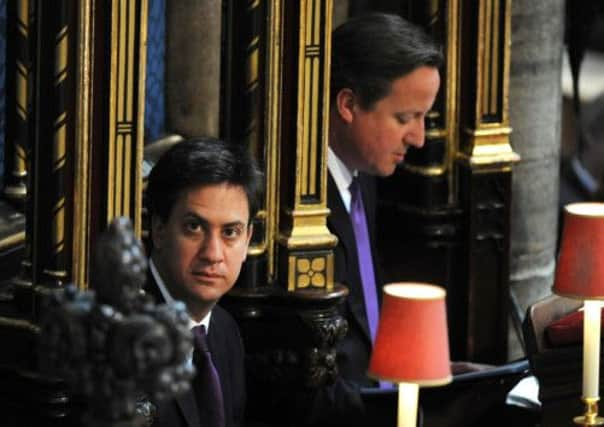Andrew Whitaker: Ed Miliband’s change of direction


The Labour leader’s acceptance of the benefits freeze comes as the party has indicated it would not reverse cuts to child benefit for households where one person is earning at least £50,000 and would end winter fuel payments for pensioners on high incomes.
Mr Miliband’s move away from universality comes just months after he insisted in a TV interview that the principle of free services for all was a “bedrock” of the Welfare State.
Advertisement
Hide AdAdvertisement
Hide AdSince his election as leader in autumn 2010, Mr Miliband has succeeded in uniting warring factions within Labour and putting the party in contention to win the next General Election. He also had the courage to accept that Labour in power failed to do enough to tackle inequality and launched a high-pay commission to look at curbing excessive boardroom pay.
Backing for paying a living wage for employees of firms benefitting from public contracts has also been an effective campaigning tool used by Labour under Mr Miliband. All of which makes Mr Miliband’s decision to deliver a speech yesterday, in which he talked about a “something for nothing” welfare, a departure from the equality agenda of his leadership so far.
At a time when controversial coalition policies such as the “Bedroom Tax” – that forces social housing tenants with spare bedrooms to move to a smaller home or lose up to 25 per cent of housing benefit – are hugely unpopular, it seems strange for the Labour leader to be embracing the Tory-Lib Dem welfare agenda.
Mr Miliband’s backing for an overall three-year cap on welfare spending appears to be motivated by a belief that Labour is on the back foot over welfare.
But it is the UK coalition which has had flagship back-to-work schemes ruled unlawful. There has also been condemnation of some of the practices of fit-for-work tests that saw former solider Mark Dryden, who lost an arm in an explosion in Iraq, being told his benefit was being withdrawn because he was considered fit for work.
Yet Mr Miliband appears to be prepared to concede large parts of the welfare debate to the Tories and Lib Dems ahead of the General Election in two years’ time. There were reports last year that Mr Miliband was looking at committing Labour to some form of public ownership of the railways due to soaring rail fares and high levels of public subsidies for train operators.
Mr Miliband has also been urged by the anti-poverty charity Joseph Rowntree Foundation, to replace the national minimum wage currently set at £6.31 for adults with a living wage – that currently stands at £7.50 in Glasgow – for all workers.
However, whether Mr Miliband will include such policies in Labour’s next manifesto remains to be seen, given the apparent change of direction.